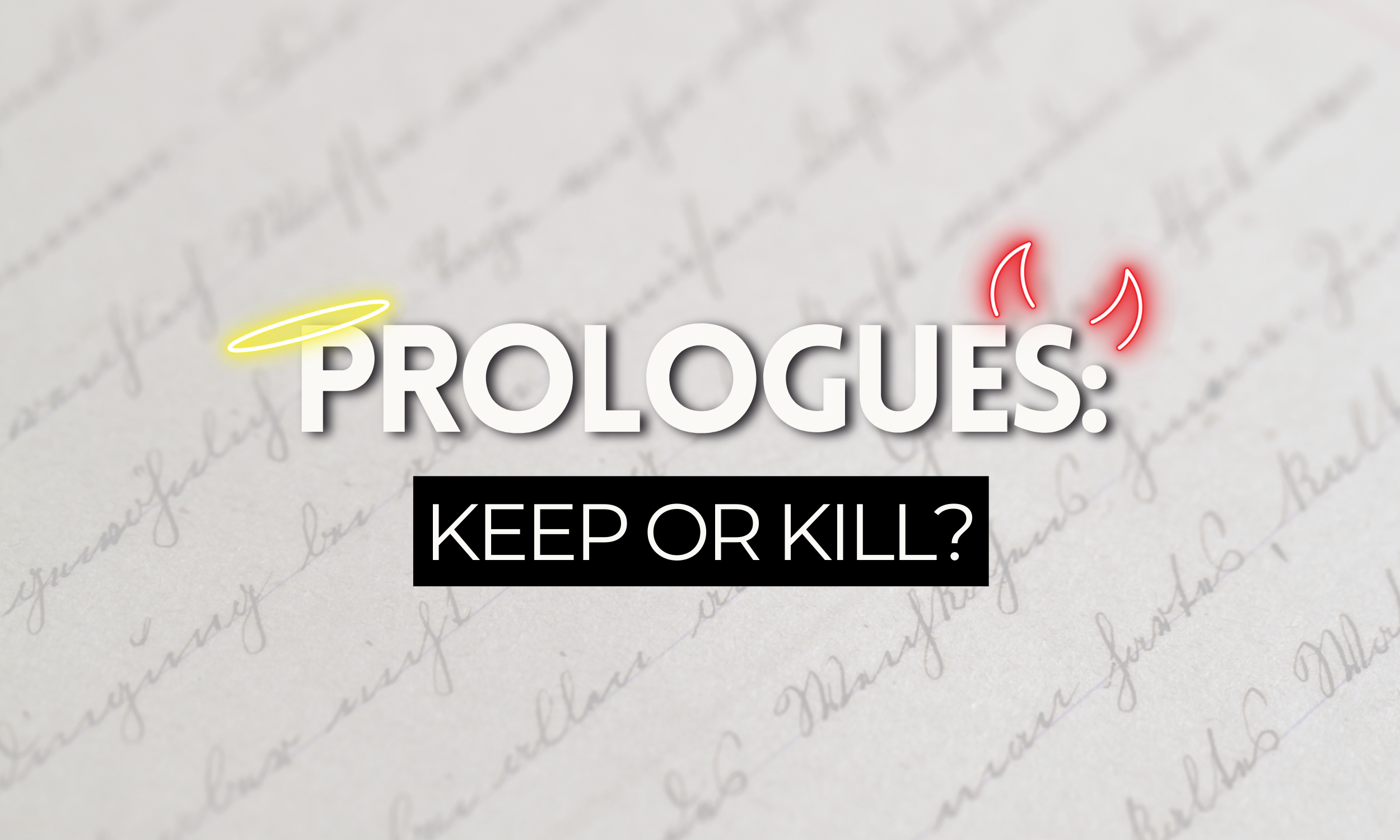When to Keep (Or Kill) A Prologue
Here’s why prologues sometimes don’t work:
A non-protagonist character is used as the POV character
They serve up a heaping pile of backstory or worldbuilding information
They employ a dream sequence
They lack a hook to keep the reader engaged
They are—simply—too long
🚨 If you’re writing a prologue just for the reader to understand something, consider if that’s the best way to get that information across. 🚨
Hint: It’s usually not.
Is your prologue in her rep era?
Prologues: Keep or Kill It?
Janice Hardy is the GOAT when it comes to writing and editing advice. And it’s her blog that I borrow these questions from and share with you.
These questions will help you figure out if your prologue works:
Ask yourself these questions after you’ve finished your first draft.
Question 1: Does the prologue give readers an important piece of the protagonist’s history that they need to know before the main story?
Janice Hardy suggests to kill it! ☠
Why?
It’s hard to engage readers’ attention with backstory. Especially when they don’t know the protagonist yet and don’t have a reason to care/invest in that protagonist and this backstory moment won’t mean anything to them (aka they have no context). This sort of prologue might not do enough to drive the story forward because it’s set in the past.
Question 2: Does the prologue give readers an important piece of worldbuilding that sets up why things are the way they are and how they’ll affect your protagonist?
JH suggests to kill it. ☠
Why?
Same reason as above: It’s hard for readers to care about the worldbuilding of a story up front, especially when they have no idea if it’s relevant to the main story or to the protagonist.
Question 3: Is the prologue an event that happens later in the book?
JH suggests to kill it. ☠
Why?
Readers likely won’t get the context if this scene happens in the prologue. If this event happens later in the book, there likely isn’t a need to use it in the prologue and it likely will kill the tension of that scene when it does eventually turn up in the main story.
Question 4: Is the prologue a scene that foreshadows what the protagonist is about to get involved in?
JH suggests to mayyyyybe keep it. 🤔
Why?
If the prologue gives hints without giving away too much, it can work. If the prologue doesn’t flash forward or back, it can work. If it creates mystery or intrigue and makes the readers ask questions, it can work.
Question 5: Is the prologue a scene that reveals a key piece of information none of the POV characters know?
JH suggests this sort of prologue can go either way! 🔄
Why?
If the reveal in the prologue doesn’t ruin the tension or suspense, the prologue will likely work. But if it reveals this information to the readers and the protagonists then spend the rest of the book looking for it, kill it.
Question 6: When you describe your prologue, do you use the words ‘sets up’ to describe it?
JH suggests to kill it. ☠
Why?
The setup to the main story likely isn’t enticing enough to keep readers’ attention. Readers don’t need to know how “it” all began.
Some general tips for writing prologues that work:
Keep the same POV type as the main story. If you use first person, keep to first person. If you use third person limited, keep to third person limited.
Hint how the prologue event ties into the main story.
Introduce a problem, dilemma, or choice to act as a “now what?”
The prologue should be relevant to the main story.
Make sure it feels like an active scene!
How do you know your prologue works?
It’s not easy, I’ll give you that.
But the best advice I’ve ever heard comes, again, from 🐐 Janice Hardy:
Write the prologue and finish the book. You might be unable to tell if the prologue is necessary until the book is complete.
When working with critique partners and beta readers give them the manuscript without the prologue included and ask them if they feel like anything is missing. If not, you can likely cut the prologue.
When it comes to analyzing prologues for your own research, look to debut authors who have been recently published. I advise against looking into the past when it comes to prologues.
And I advise against looking at your favorite best-selling author with a backlist of books.
Established authors can get away with breaking rules and trying new things out because they have an established readership that trusts them to take them on a satisfying adventure.

